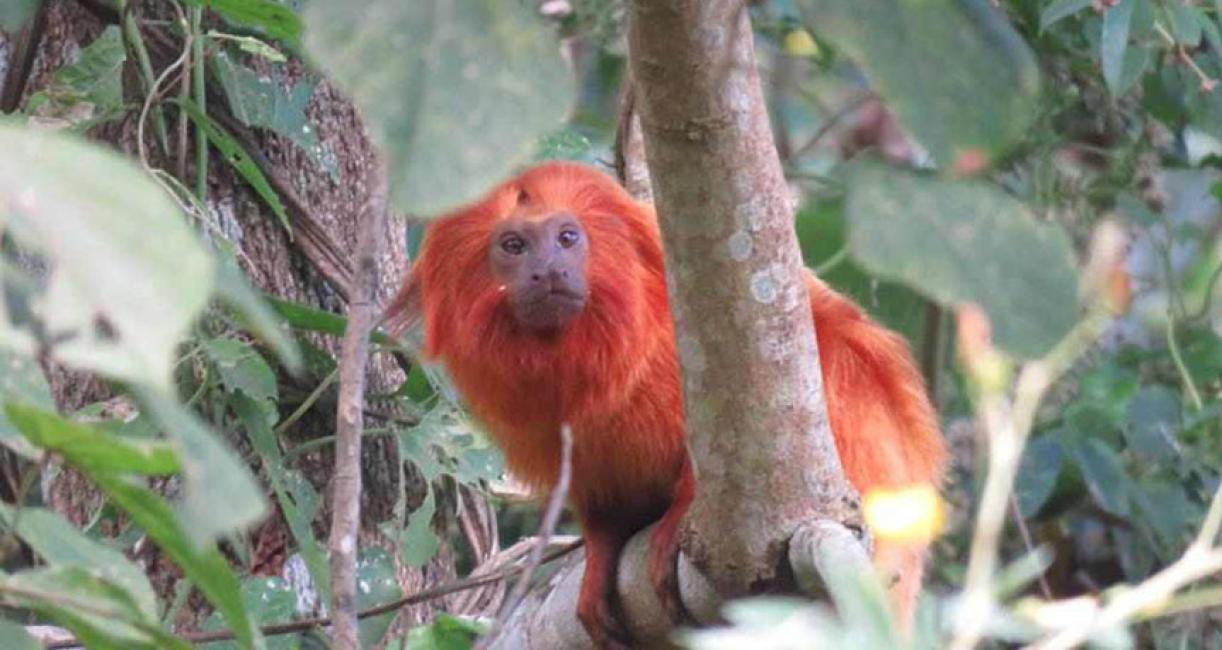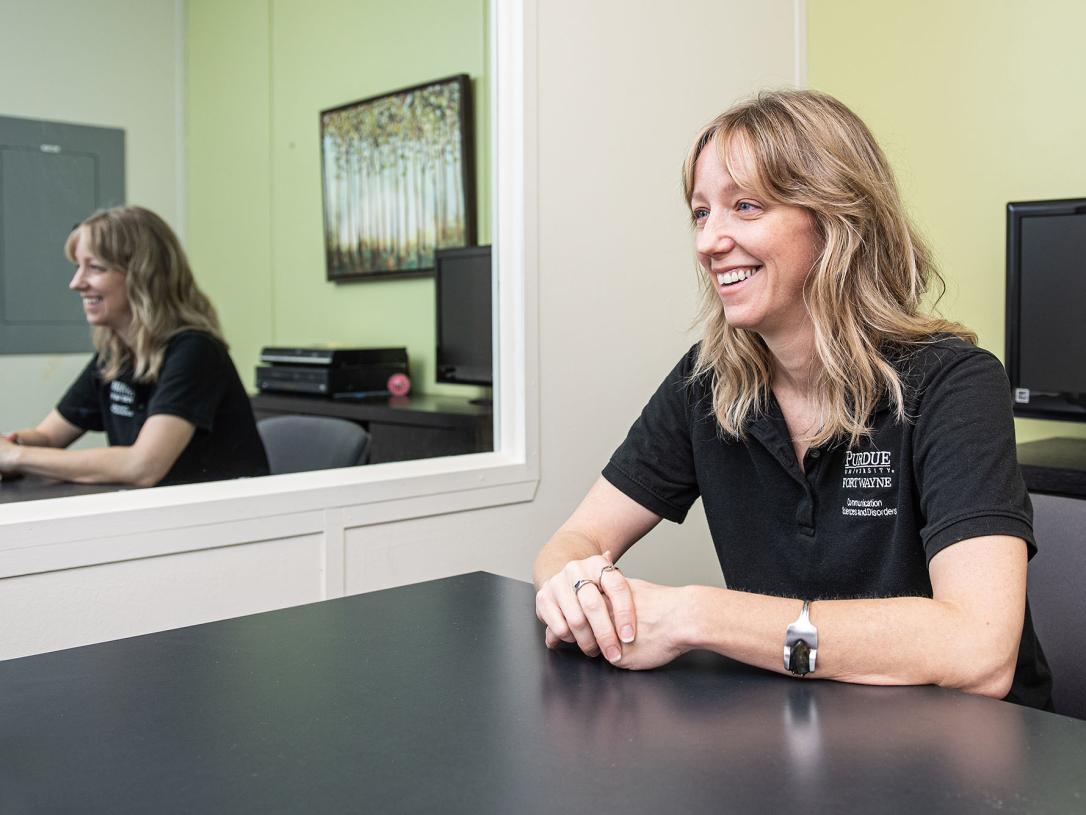



Psychology major using degree to save endangered species
By Blake Sebring
August 3, 2023
After earning a degree in zoo animal technology, Steve Fosselman was working with African primates at the Fort Wayne Children’s Zoo. Though he loved the job, Fosselman also realized he could accomplish more to protect animals if he came to Purdue University Fort Wayne to study—if you can believe it—psychology.
“I felt like I wasn’t making the impact I could,” Fosselman said. “With every keeper (presentation) and encounter at the zoo, I poured my heart out trying to connect with each guest. I realized, although important, the people I needed to connect with were those that called that land their home. That is where the discipline of social psychology comes into play.”
Fosselman, B.A. ’22, has a unique interpretation of conservation. Instead of telling people bluntly to stop harvesting natural resources and driving animals into extinction, what if other suggestions could support the planet better?
“Getting a degree in psychology has given me insight into the human condition and a way to connect with these people,” Fosselman said. “When we feel like these natural areas are part of us, then we can begin to protect them. I feel like a psychology degree gives me insight that I would not have obtained with a typical natural science degree.”
That starts with understanding and possessing empathy for those who use natural resources, which is just about everyone. These people, Fosselman said, are entitled to earn a living and support their families with the resources available to them. Yelling at them to stop only prolongs the argument and doesn’t provide a solution. Conservation, he said, starts with people.
“Although we are destroying the natural world at an alarming rate, we are not evil,” Fosselman said. “Most of these people are just trying to get by and have the bare essentials to live. We all have the same basic needs, to support ourselves and the ones we care about. These experiences have taught me that there are creative ways to reach those means while living in harmony with the planet that also takes care of us.”
Fosselman recently returned from a six-week expedition to Brazil to work with inhabitants in the Amazon basin forests. The goal was to get local landowners to give portions of their property for reforestation.
That also might mean finding a beneficial coexistence between agriculture and local wildlife, such as offering an alternative for growing coffee beans in the shade provided by the trees. Fosselman said that suggestion has worked in New Guinea, giving the people a more sustainable way to survive.
“It’s these creative solutions that I wish to be a part of,” Fosselman said. “…To be able to help create a world where all can live together without the threat of extinction of life or well-being.”
Fosselman said that according to scientific estimates, the world is losing approximately 27 species of plants, animals, and insects each day, meaning almost 10,000 species become extinct every year.
“I realize those numbers are horrifying and shocking, but not all hope is lost,” Fosselman said. “By understanding the complex social relationship between humans and animals, we can better evaluate each other’s needs and come to a mutually beneficial coexistence.”
While studying for his master’s degree with Miami University in Oxford, Ohio, through Project Dragonfly and the associated Earth Expeditions, Fosselman will have opportunities to make similar trips, possibly to Guyana, India, Kenya, Mongolia, Namibia, Paraguay, and Thailand. While fundraising for these future experiences, he’s currently back working at Fort Wayne Children’s Zoo using advanced sound recording technology in the Indonesian Rain Forest’s dome to get a consistent census on the birds.
“I feel like we have developed the idea that we are separate from nature, when in fact, we are deeply rooted in it,” Fosselman said. “We are part of nature.
“I believe this movement starts in our own backyards. Instead of getting people interested in primates thousands of miles away, I want to open their eyes to the complex ecosystems outside their front doors. Empowering the local community is the goal and the most effective path for sustainable change.”




